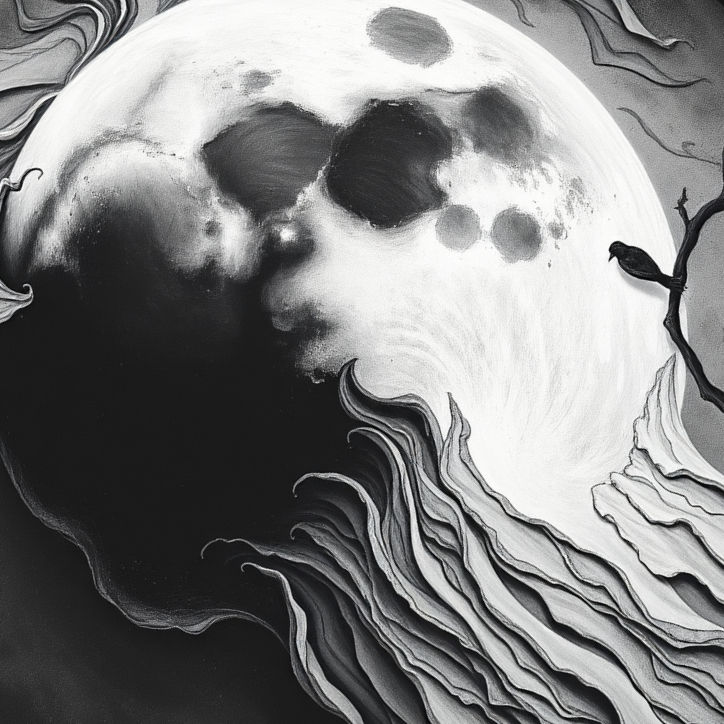THE GHOST OF A KERALA RIVER AND HOW TO SAVE IT
- Ravi Shankar Etteth

- Jun 27, 2025
- 6 min read

Drive through Palghat at dusk, and you’ll find a Kerala that still remembers itself. The paddy fields stretch in emerald sheets, their hush broken only by the call of egrets and the low chug of a tractor returning home. Every few kilometres, the air bursts with temple music—shrill nadaswarams, drumbeats like monsoon thunder, and the scent of sandalwood and fireworks. Elephants shuffle along village roads, dressed like kings. Banyan trees cast long shadows over coiled snake figurines—naga kallu—around which flicker oil lamps lit by women whose mothers taught them to do so at the exact fall of dusk. In mango groves, boys still climb and pluck fruit with the same mischief their grandfathers once did.
And yet, amid this time capsule of a land, one sound is missing: the voice of the Kalpathy River and its tributaries such as papanasini that flows through Chittoor.
The Kalpathy Puzha—once the subject of vanchipattu and kavithakal, once the mother who washed generations on her ancient granite ghats—is all but gone. Her waters have thinned to a trickle in the dry months. On the ghats, now carpeted in weeds and plastic wrappers, old men sit and reminisce rather than bathe. “when the river was our domain..'
'It was our playground, our television.”
What happened to her?
Some say she was betrayed slowly, politely. First, the sand mining—deep, systematic, and officially sanctioned. “They took her bones,” a retired Malayalam teacher told me once. “How will she stand without them?” The river, stripped of her sand, could no longer retain water. She began to bleed silt and sorrow.
The irony cuts deep. Palghat is perhaps the last place where old Kerala lingers unapologetically. Here, Brahmin agraharams still recite Vedic chants in the evenings. Here, temples keep not just gods but memories alive. The annual Kalpathy Ratholsavam draws people from across the state, with its chariot processions and classical concerts under the stars. And yet, the river that gave the festival its soul is left to die in silence.
Pride is not enough. You can polish the brass lamps, decorate the chariots, repaint the gods every year. But if you forget the river, you forget the pulse. And forgetting, here, has come not through ignorance but through a compromise with greed—a price paid quietly for cement and development, for the shallow dreams of a real estate boom.
Rivers are not just water—they are memory in motion. And when memory is mined and sold in lorry-loads, only dust remains.
Palghat still lights its lamps at twilight. But they no longer shimmer on the waters of Kalpathy. They flicker instead on dry stone and the eyes of those who remember.At first glance, Palghat looks untouched by the fever that afflicts the rest of Kerala. The road from Malampuzha winds past low hills and coconut groves, and as you descend toward the plains, the air thickens with a quiet, rural opulence. Here, time does not pass—it curdles gently. The paddy fields still open out like the pages of a well-thumbed book, their greens varied and tender. You see boys with rolled-up mundus leaping across irrigation canals, dragonflies hovering above water that still reflects a stubborn sliver of sky.
Kalpathy and Olappamanna, mango groves whisper with a scent both sweet and sour. Banyan trees guard crossroads where buses never stop. Every small shrine has a tale, every pond a rumour, every house a shadow of music. There are still people who know the names of the lilies that bloom in the village ponds and the constellations they reflect at night.
And then, as if someone has dropped a curtain, the river vanishes.
Kalpathy Puzha, once the song of this land, has become its silence.
It does not begin as a shock. You drive past the agraharams of Kalpathy—clean streets, carnatic music drifting out of wooden verandahs—and reach the banks where the ghats used to bustle with women washing vessels and men arguing politics. Now they lie exposed to the sun, dry and cracked. Grass grows between the steps, and plastic bottles gather in the crevices. There is no laughter. There are no ripples.
What happened?
The old men will tell you stories of how they bathed here at dawn before school, of how they leapt into the water while their mothers lit lamps on the banks. They’ll say the river used to rise with the monsoon and fall gently, like an old habit. They’ll say, “Ivideyellam vellammayirunnu orikkal…” (All this used to be water…) and look away, as though ashamed.
Over the past two decades, the Kalpathy Puzha has been mined for her sand until she could no longer hold her bed. Trucks rolled in at night and by day; licences were issued with a wink; the sand mafia fed both ambition and apathy. The bones of the river were carted away to build houses she can no longer nourish. Without her sand, the riverbed collapsed, and the water—like a shamed witness—retreated.
This, in a district that still wears its pride like a sacred thread.
Palghat has always been Kerala’s soul in exile. It guarded the mountain passes that led to Tamil Nadu, protected its dialects, preserved its music, and polished its gods. The Kalpathy Ratholsavam still draws people from across the world—thousands walking beside the rathams as they roll through streets strung with mango leaves. Musicians play thodi and bhairavi into the night. Photographs are taken. Memories are made. And yet, a hundred feet away, the river that once anointed the chariot’s wheels lies invisible.
There is no greater betrayal than cultural pride that forgets to protect what gave it life.
But can a sleeping river be awakened?
Environmentalists whisper warnings. The district authorities propose rehabilitation, artificial recharge, community action. Brochures are printed. Seminars are held. But without will—without rage, even love becomes decorative. And in Palghat, there is love. Too much of it. Love for what was, not enough for what must be.
At twilight, the lamp flames still flicker by the snake stones, and for a moment, everything seems possible. The air is full of crickets, incense, and a longing that has no name.
But the river does not come back.
Yet not all is lost. Rivers have memory, but they also have resilience.
Across Kerala and India, there are stories of revival—where communities stopped waiting for governments and gods and began to dig, plant, restore. In Aluva, the Periyar was partially brought back to life by a combination of legal action, public mobilisation, and painstaking removal of encroachments. In Pune, the Mula-Mutha riverbank saw life return when civil society collaborated with urban planners. Why not here?
Kalpathy Puzha’s healing must begin with what Palghat already possesses: a deep love of ritual, community, and continuity. What if the temple festivals that draw thousands each year became rallying grounds for the river? Imagine if every ratholsavam included a pledge to ban sand mining. If every music concert raised funds not just for the temple, but for desilting and greening the riverbank. If the youth of Kalpathy, instead of leaving for Bangalore and Boston, came back once a year not just to sing and feast, but to clean, to replant, to reclaim.
First, enforce a total ban on sand mining—legal and illegal—in this stretch of the Kalpathy Puzha. This must not be a bureaucratic gesture, but a publicly monitored, zero-tolerance crackdown. Use drones, satellite images, and panchayat vigilance.
Second, create a nadi raksha samiti—a river guardians’ trust—with villagers, temple committees, schoolchildren, and retired teachers as members. Give them funding, but also independence. Make them custodians.
Third, bring back the puzha to the classroom. Let children grow up writing poems about her, not obituaries. Create eco-literature modules in Malayalam curricula, and hold annual river festivals—not as mourning, but as reclamation.
Finally, let the lamps be lit for the river. On the day of the next festival, before the chariots roll, let every devotee bring not flowers but saplings to plant along the river’s old course. Let the music be offered to her. Let the temples remember that a dry river cannot sanctify.
Kalpathy Puzha has been betrayed by silence. She can only return through noise—the noise of memory, anger, and action.
The lamps still flicker. But if we act now, they may yet dance once more upon the river’s face.






Comments